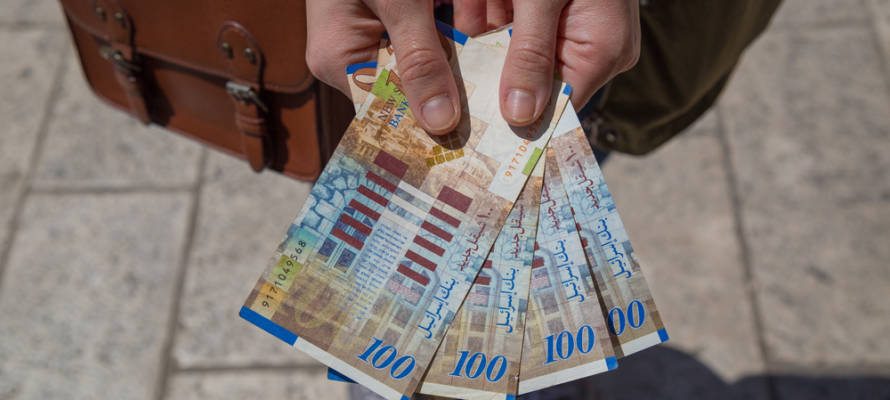Manufacturers are warning that the strong shekel could wipe out Israeli exports. Some experts disagree.
Israel has lost $1.3 billion in exports since the beginning of 2016 as a result of the rise in the value of the shekel and exports could be wiped out all together, Shraga Brosh, president of the Manufacturers Association of Israel, warned at an emergency session of the Knesset Finance Committee Tuesday.
“Before manufacturers get used to the weak dollar, the state will have to get by without industry,” Brosh told the committee. “The weak dollar and euro present an imminent danger to thousands of factories and tens of thousands of workers who are employed in industry, as exchange rates are a crucial factor in the competitiveness of Israeli industry.”
The shekel has strengthened to NIS 3.53 to the dollar, compared with NIS 3.9 at the start of 2016, and NIS 3.95 to the euro, compared with NIS 4.25. This year alone, the shekel has gained over 15 percent against the basket of currencies.
The Bank of Israel (BOI) has aggressively purchased foreign currency in an attempt to stem the surge in the shekel, leading foreign currency reserves to soar to a record $107 billion following purchases of some $5 billion since January.
Not everyone agrees with the BOI policy. The former director of the BOI’s foreign currency department, Barry Topf, recently criticized the decision to pad the foreign currency reserve, saying that buying dollars was no more than a subsidy for inefficient exporters and that the policy should be reevaluated.
Brosh praised the BOI’s efforts, saying, “To the BOI’s credit, it is doing its best. Unfortunately that is something that cannot be said for the government.”
‘Strong Shekel Not a Crisis’
“A strong shekel is not a crisis,” Minister of Finance Moshe Kahlon said in March during a discussion on the issue, “It’s a result of a strong economy. The Israeli economy has had one of the best years in its history, and the strengthening of the shekel is a direct result of the strong economic figures. At the same time, we cannot ignore the damage to exports, and alongside the Bank of Israel’s short-term monetary actions, we must put our shoulders to the wheel to outline policies for strengthening industry and boosting productivity in the long term. The government of Israel will not abandon the exporters.”
A nearly nonexistent inflation rate and low unemployment have helped propel Israel to the No. 3 spot on a list of the world’s most stable and promising economies for 2016, according to a report published as recently as April by the Bloomberg financial news agency.
By: TPS and United with Israel Staff
